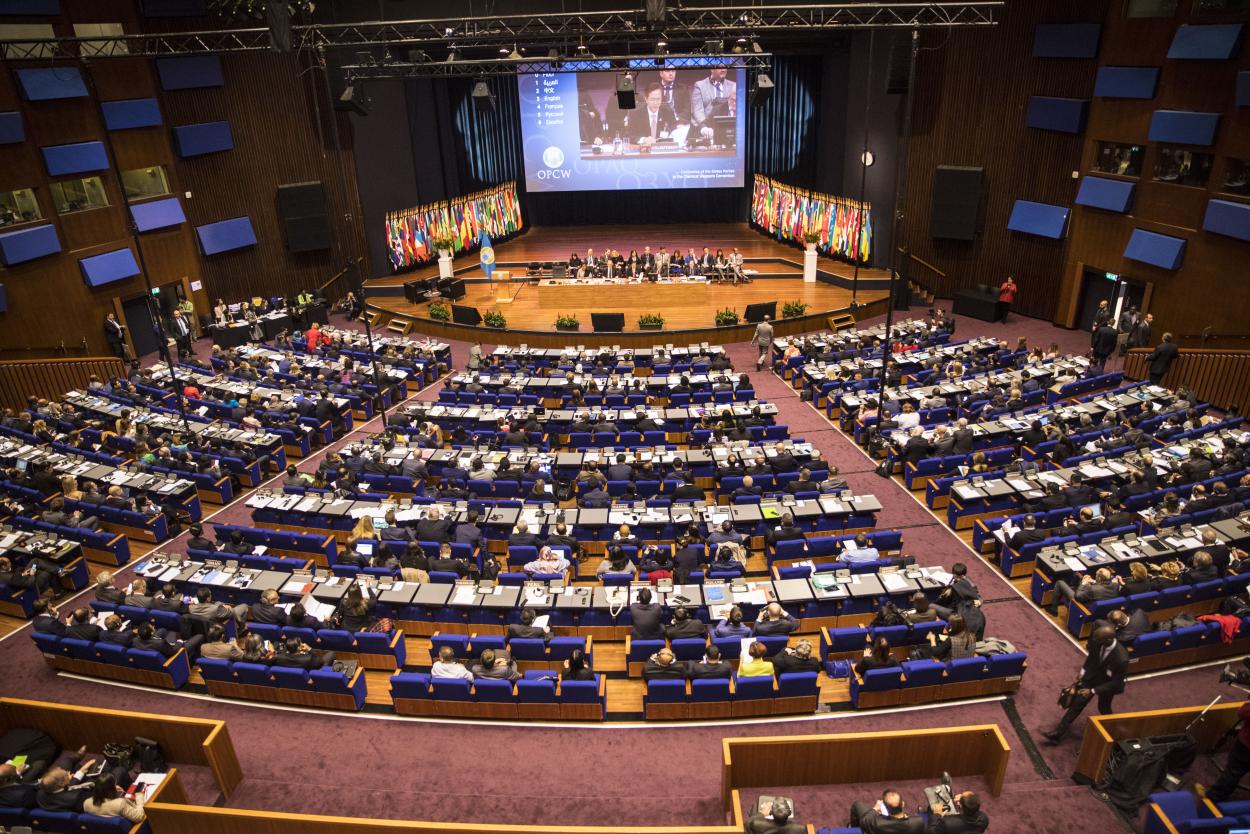
The 24th session of the Conference of the States Parties to the Chemical Weapons Convention (CWC) is gathering this week in The Hague to address new projects, encourage cooperation, and chart the progress of their shared endeavor.
“The recent use of chemical weapons, as well as the potential for misuse of advances in science and technology, dictates that we remain vigilant, agile, and fit for purpose,” OPCW Director-General Fernando Arias said.
Adaptation, he noted, will be critical to meet current and future threats, and to continue the prevention of chemical weapon use. There have also been some successes achieved recently, with progress made in the creation of a new Center for Chemistry and Technology and on the elimination of declared stockpiles of chemical weapons.
The Conference exists as an international reminder of united action against chemical weapon use and works to promote the efforts of and compliance with the CWC. It meets annually but holds a Review Conference every five years to review operations and set a new strategic direction. Every one of the 193 member states of the OPCW is represented there.
Earlier this week, the conference included awards for three partners for progress made in permanently eliminating chemical weapons while promoting chemistry for peace. Prize money awarded to the recipients is made possible from the organization’s 2013 Nobel Peace Prize, along with supplementary funds from The Hague. Dr. Robert Mikulak of the United States, Cheng Tang of the People’s Republic of China and the International Union of Pure and Applied Chemistry serve as joint recipients of this year’s Hague Award.
Bilateral meetings between the Director-General, senior government officials, and other representatives are ongoing through the end of the conference on Friday. To close out the week, delegations and participants intend to honor the victims of chemical weapons and restate their commitment to the fight against chemical weapons through a wreath-laying ceremony in the OPCW’s memorial garden.




